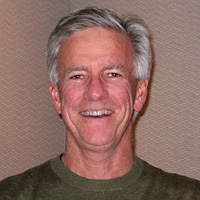It has become a familiar news story. An opponent of gay marriage discovers that a relative is homosexual and suddenly that opposition evaporates. In a quick 180 degree reversal, what had been a grave moral threat becomes instead an infringement of a loved one's civil rights.
Although these changes of heart help move the dial on this issue, they always leave me disappointed. These politicians have displayed no new found capacity for insight or empathy: their attitude changed only when they saw discrimination affecting their own families. In a certain respect an underlying premise is unchanged: what had been framed as an "us versus them" issue remains as such. Their position moved only because the definition of "us" changed.
But perhaps this is as good as it gets. Real social progress is incremental, if only because people tend to rely on their personal experience in forming opinions on public matters. Looking back, I believe that my parents' generation was more receptive to the programs we define as the social safety net not because they were necessarily more generous, but because their experience during the Depression taught them that poverty was a misfortune, not an indictment of character. Looking forward, we can hope that the suspicions about Obamacare dissipate as people have friends and family whose lives are saved or improved because they now have access to better health care.
Prejudice erodes in one of two ways. People can acknowledge their common humanity, but this requires an act of imagination: you have to walk that proverbial mile in someone else's shoes. Or, you can wait for people to experience it within their own circle of family and friends. But there is more happening here than just the reflex to protect one's own. These changes of heart underscore the need for all of us to tell our stories. When we hide things out of shame or fear, we make it difficult for people to put a familiar face on an issue that they might otherwise regard as abstract or of little consequence to them. This is how a more open society is the first step to a more just one.
With a Perspective, this is Paul Staley.
